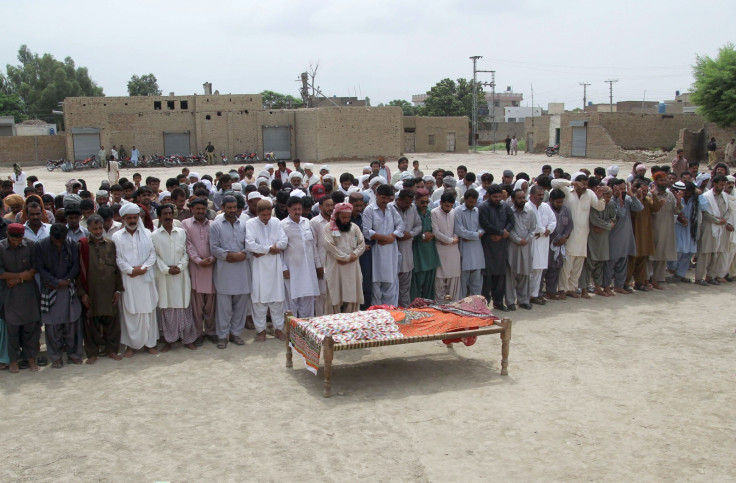Qandeel Baloch didn't just push against Pakistani boundaries – she vaulted over them
Until we properly punish honour killings, Pakistanis will accept that men can kill women they can't control.

Pakistani social-media star Qandeel Baloch was best known for her risqué Facebook and Instagram feeds, which were considered mild by Western standards, but incredibly provocative by Pakistani ones.
Baloch broke the norms of what is acceptable behaviour, dress and attitudes for a Pakistani woman. She didn't just push against the boundaries, she vaulted over them and thumbed her nose at everyone who jeered at her efforts.
But in the end, she couldn't outrun a centuries-old Pakistani tribal tradition: honour killing, wherein family honour is deemed irreparably insulted by the breaking of strict moral codes, and only bloodshed can reverse the curse.
So her brother allegedly drugged her and strangled her in her sleep, putting her dreams to an abrupt and horrible end.
Baloch's provocative selfies, videos, and statements to the press were more than just a Kim Kardashian-esque quest for fame – they were a working-class woman's very public process of self-exploration and growth played out against a backdrop of suffocating restrictions for women.
In a country where conservatism and modernity wrestle for supremacy, Baloch bravely endured insults and threats from both men and women. She was the first to call them out for their hypocrisy; people viewed her videos and photographs in secret, but voiced loud disapproval of her in public. Her response: "I am sure 99% of you hate me. And I'm 100% sure that not even my shoe cares."
Qandeel Baloch's murder has shocked and polarised a generation of Pakistanis trying to balance their own personal freedoms with the conservative social mores of older generations. Personal liberty, internet freedom and feminism all came together in a confusing crucible when it came to Baloch, and many Pakistanis found a symbol of all three in her internet persona, which they claimed to hate with a passion. These were the Pakistanis, young and old, male and female, who professed to be happy when Baloch was found murdered in her family home.
For other Pakistanis, Baloch was a unique figure: someone you wouldn't necessarily want to be friends with, but whose actions were so over the top that they drew both attention for their lack of inhibition and admiration for their boldness.
Baloch's provocative selfies, videos, and statements to the press were more than just a Kim Kardashian-esque quest for fame; they were a working-class woman's very public process of self-exploration and growth played out against a backdrop of suffocating restrictions for women

She was the 'bad girl' of Pakistani society that secretly and not so secretly many young Pakistani women envied: someone who decided that society's norms and restrictions were repugnant to her, so she would live her life on her own terms.
Baloch never claimed to be an intellectual or even a role model, she just wanted the freedom to curate her own life on social media, as so many Pakistanis are already doing, in much tamer ways. Baloch's murder brings to light other debates in Pakistani society, on honour killing in particular and the status of women in general.
With much fanfare the Punjab government this year introduced The Punjab Protection of Women Against Violence Act 2015, which was quickly hamstrung by objections from the religious right.
After the Oscar win for the documentary A Girl in the River, Prime Minister Nawaz Sharif promised to enact a law specifically removing legal loopholes through which murderers could escape punishment if they claimed the murder was an act of honour killing. But that law is still to be enacted anywhere in Pakistan.
Pakistan's younger generation is now questioning and challenging the idea that honour is housed in a woman's body. Until honour killings are subject to strong laws and punishment, many Pakistanis will continue to espouse the idea that a woman's life should be controlled by her family in order to maintain morality. They'll also accept the grim reality that too many women's lives are ended in Pakistan by men who believe themselves to have the authority to kill them if they can't keep them in line.
Qandeel Baloch's death can be seen as a morality tale — don't live like this if you want to keep living — or it can be used as a teaching moment, to show the horror of gender-based violence against women. The sad thing is that neither is a happy ending for Pakistan's would-be princess of social media.
© Copyright IBTimes 2025. All rights reserved.




















